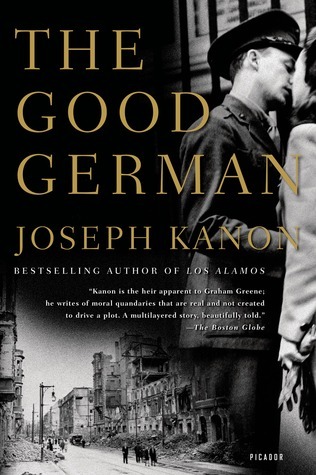
Armageddon: A Novel of Berlin
Book Description
Berlin stands on the brink of chaos, where love and loyalty clash with betrayal and corruption. As the city grapples with the specter of imminent war, a group of fiercely determined individuals navigates a treacherous landscape of allegiance and treason, their fates intertwined in a gripping dance of survival. Secrets unravel and friendships are tested as the dark shadow of power looms over their lives. Can hope endure amidst the ashes of despair? With every corner of the city echoing with danger, what will ultimately rise from the ruins of Armageddon?
Quick Book Summary
"Armageddon: A Novel of Berlin" by Leon Uris plunges readers into the shattered heart of post-World War II Berlin, where the city’s fate hangs in the balance between occupying powers and the scars of past conflict. Through the eyes of American, British, Soviet, and German characters, the novel explores the physical and emotional reconstruction of a city devastated by war. Loyalties are tested as characters navigate political intrigue, shifting alliances, and the lingering trauma of totalitarianism. Amidst the division and desperation, the Berlin Airlift emerges as a symbol of resilience and hope. Uris masterfully weaves love, betrayal, survival, and the pursuit of justice, portraying not only a city in ruins but also the enduring human spirit that rises from the ashes.
Summary of Key Ideas
Table of Contents
Reconstruction and Division of Postwar Berlin
Set in the immediate aftermath of World War II, Berlin is a city carved into zones controlled by the Americans, British, Soviets, and French. The political and ideological struggle for dominance unfolds against a backdrop of devastation, starvation, and distrust. Day-to-day life is fraught with uncertainty as residents contend with scarcity and the omnipresence of foreign soldiers, while the city’s future lies at the mercy of the emergent Cold War.
Moral Ambiguity and the Cost of Allegiance
Uris introduces a cast of complex characters representing each occupying force and the beleaguered Germans. Their intersecting lives reveal the personal costs of war, as well as the conflicting motivations that drive individuals to collaborate, resist, or simply survive. Secrets, old grievances, and new romances flare amidst the rubble, as characters confront questions of loyalty, justice, and personal identity.
The Impact of War on Love and Relationships
Central to the novel is the Berlin Airlift, a massive humanitarian and logistical undertaking by the Western Allies to sustain the city when Soviet authorities blockade all land routes. This event serves both as a backdrop and a catalyst for shifting alliances, testing the resolve and ingenuity of the novel's protagonists. Their efforts underscore themes of courage, sacrifice, and the global consequences of ideological confrontation.
Ideological Conflict and the Berlin Airlift
The psychological and emotional wounds of war shape every relationship in the story. Romantic entanglements are strained by differing allegiances and the trauma of recent events, as love is both a source of strength and vulnerability. Uris explores how personal connections are forged and tested when survival itself is at stake, and how trust is difficult to rebuild after widespread betrayal.
Endurance and Renewal Amid Ruins
Ultimately, "Armageddon" becomes a study of renewal amid devastation. While the city faces physical and moral ruin, hope flickers through acts of kindness, moments of unity, and the determination to build something better from the ruins. The novel closes with characters transformed by their experiences, compelled to face an uncertain future with resilience and hard-won wisdom, embodying the enduring potential for humanity to rise from its darkest hours.
Download This Summary
Get a free PDF of this summary instantly — no email required.





